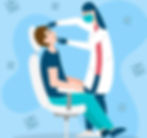The Ultimate Guide to Stopping Sinus Infections
- Leadraft SEO
- Mar 21
- 3 min read

Sinus infections, also known as sinusitis, are a common health issue affecting millions of people worldwide. They cause congestion, headaches, facial pain, and a general feeling of discomfort. While sinus infections can be temporary, some individuals experience chronic sinusitis, leading to prolonged symptoms and frequent recurrences.
If you are tired of dealing with sinus infections and want to find effective ways to prevent them, this guide is for you. In this comprehensive article, we will cover the causes, symptoms, treatments, and preventive measures to help you stop sinus infections for good.
What is a Sinus Infection?
A sinus infection occurs when the cavities around your nasal passages (sinuses) become inflamed and swollen. This can happen due to various reasons, including infections, allergies, or environmental factors. Sinusitis can be classified into two types:
Acute Sinusitis: Lasts for a short duration (typically less than four weeks) and is often caused by a viral infection, such as the common cold.
Chronic Sinusitis: Lasts longer than 12 weeks, even with treatment. It can result from prolonged inflammation, bacterial infections, or underlying health conditions.
Common Causes of Sinus Infections
Several factors can trigger or contribute to sinus infections, including:
Viral infections: The most common cause, often linked to colds or flu.
Bacterial infections: Occur when bacteria multiply in the sinuses, leading to a more severe infection.
Allergies: Seasonal allergies, dust, pet dander, and mold can irritate the sinuses.
Nasal polyps: Growths in the nasal passages that obstruct normal drainage.
Deviated septum: A misalignment in the nasal structure can cause blockages and increase the risk of infections.
Environmental irritants: Pollution, smoke, and strong odors can contribute to sinus inflammation.
Recognizing Sinus Infection Symptoms
Symptoms of a sinus infection can vary depending on the severity and cause. Common signs include:
Nasal congestion and difficulty breathing
Facial pain or pressure, especially around the eyes, nose, and forehead
Headache or earache
Thick nasal discharge (yellow or green in bacterial infections)
Postnasal drip (mucus running down the throat)
Cough, sore throat, or hoarseness
Fever and fatigue in severe cases
Effective Treatments for Sinus Infections
Home Remedies for Sinus Relief
For mild sinus infections, home remedies can help alleviate symptoms and speed up recovery:
Steam Inhalation: Breathing in steam can open nasal passages and relieve congestion.
Saline Nasal Rinse: Using a saline solution can clear out mucus and allergens.
Stay Hydrated: Drinking plenty of fluids helps thin mucus for easier drainage.
Use a Humidifier: Keeping indoor air moist can prevent nasal dryness and irritation.
Apply Warm Compresses: Placing a warm towel over your sinuses can reduce facial pain and pressure.
Medical Treatments for Sinus Infections
If symptoms persist or worsen, medical intervention may be necessary:
Over-the-Counter Medications: Decongestants, antihistamines, and pain relievers can help manage symptoms.
Antibiotics: If a bacterial infection is confirmed, a doctor may prescribe antibiotics.
Steroid Nasal Sprays: These can reduce inflammation and improve sinus drainage.
Allergy Management: If allergies are a trigger, antihistamines or allergy shots may be recommended.
Surgical Interventions: In cases of chronic sinusitis, procedures like sinus surgery or polyp removal may be required.
Preventing Sinus Infections
Taking proactive steps can help you prevent sinus infections before they start:
Maintain Good Hygiene: Wash your hands frequently to reduce exposure to viruses and bacteria.
Stay Hydrated: Drinking enough water helps keep mucus thin and prevents congestion.
Manage Allergies: Use allergy medications or air purifiers to minimize allergens in your environment.
Avoid Smoke and Pollutants: Reduce exposure to tobacco smoke and strong chemicals.
Keep Your Home Clean: Regular cleaning can eliminate dust, mold, and pet dander.
Use a Nasal Spray: A saline spray can keep your nasal passages moist and clear of irritants.
Practice Good Sleep Hygiene: A well-rested immune system can better fight infections.
When to See a Doctor
If you experience recurrent sinus infections or symptoms lasting longer than 10 days, it may be time to see a specialist. Pinnacle Hospitals provides expert ENT care for chronic sinus conditions, helping patients find long-term relief through personalized treatment plans.
Sinus infections can be frustrating, but with the right prevention and treatment strategies, you can significantly reduce their impact on your life. Whether you rely on home remedies, medical treatments, or lifestyle changes, consistency is key to keeping your sinuses healthy.
If sinus issues persist, consult a healthcare provider to identify the root cause and explore advanced treatment options. By taking proactive steps, you can enjoy clear breathing and a better quality of life.

